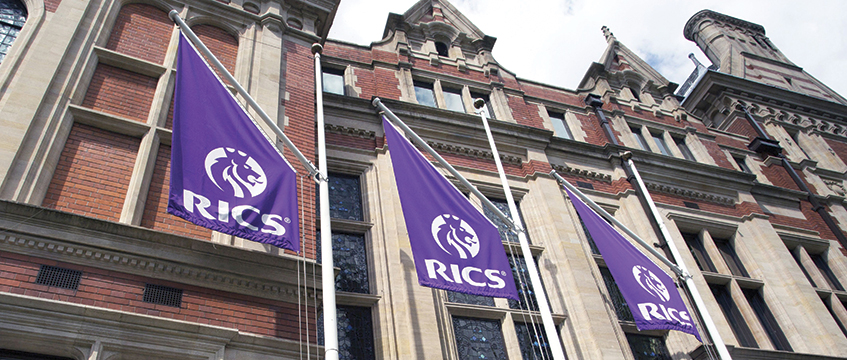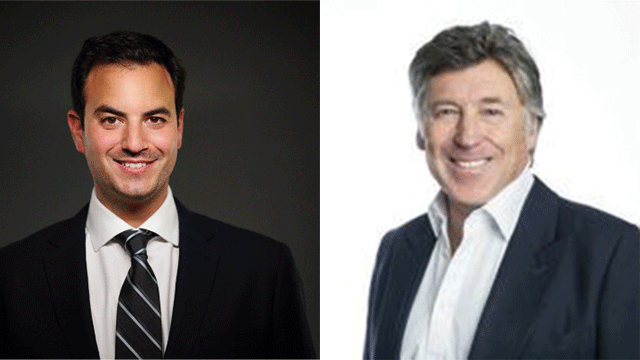Lord Bichard’s review into the RICS’s strategy, purpose and governance looks set to explore multiple problems, including the organisation’s lack of diversity, disproportionate commercial activities, value for members and weakening links between staff and members.
Twelve themes have been drawn up from 504 responses to Bichard’s call for evidence, which will form the basis for his recommendations, scheduled to be published in June.
“There is a strong consensus about the issues,” said Bichard. “There is also a determination to do something about them now. The list of issues is quite long, and the RICS has a lot to do to win back its members and reputation.”
Among the response were calls for: a clearer governance structure; a more robust governing council model; increased focus on acting in the public interest; greater efforts on diversity and inclusion; fostering the next generation of talent; restoring more power to members; and improved services and regulation.
Surveyors also highlighted a lack of value from subscription fees and urged a rethink of the RICS’s global expansion strategy, as well as rebalancing its commercial activities and assessing the RICS’s relevance to a vast range of sectors and disciplines.
However, Bichard said the review is unlikely to offer suggestions on fees or on bonuses, with both sitting beyond his remit.
“The one thing that struck me in all this is the passion that exists in the surveying profession,” Bichard said. “I think the RICS will come out of this much stronger.”
What surveyors said
Bichard noted that the feedback following Alison Levitt QC’s damning report into an internal row about cash management issues showed that relationships between various boards at the RICS are not working as effectively as they could be, or with the desired level of transparency.
Responses showed a consensus that roles and responsibilities at the organisation should be more clearly defined and that there should be greater transparency and accountability.
Bichard’s report will also likely recommend a series of changes to the body’s governing council, with many surveyors believing it should be the “ultimate decision-making body” at the RICS.
Criticisms were levelled at its structure, with some surveyors highlighting repeated changes to its model, the fact it is no longer chaired by the president and that its members did not reflect the make-up of the profession in terms of geographies or specialisms.
Respondents also felt that governing council did not meet often enough to deal with business, leading senior staff to assume greater decision-making powers.
Acting in the public interest
Stakeholders noted that the RICS needs to “better ensure” it is placing the public interest at the heart of its activities, particularly given that its recent failings have “damaged public confidence in the institution and its ability to protect the public”.
Several individuals providing evidence said the RICS could provide a greater leadership role on issues affecting the profession and society, such as developing solutions to sustainability and environmental challenges.
More diversity and inclusion
Many respondents, particularly larger firms, felt that too little emphasis has been placed on diversity and inclusion.
Surveyors criticised the RICS for not making enough effort to increase diversity within the profession, its own staff, its governance structures and working groups. Respondents flagged “a real danger” that the RICS will become “detached from the communities it serves”.
Only 19% of members are female and “very few” come from black or minority ethnic communities, according to Bichard, although he added that there is “not enough data” to paint a complete picture of the issue.
Valuing younger members is also likely to feature in the report, as previously reported by EG. Bichard noted that Matrics no longer holds a seat on the governing council, denying the next generation a voice.
Many submissions also referred to the poor management of the APC process in recent months, as well as arguing that the assessment to become a member of RICS needs to be modernised.
Rebalancing commercial focus
The report will likely explore the organisation’s commercial activities, with surveyors highlighting that “disproportionate attention” is being paid to commercial activities at the expense of member support, such as the organisation’s CPD training.
Bichard said that only a few respondents argued for no commercial activity at all, but most felt the right balance had not been struck.
Many submissions pointed to a slump in member engagement, particularly in the UK. Bichard said members feel they receive “poor value” for their subscriptions.
Respondents complained they could no longer access authoritative advice and professional development on topical issues. Some believed money was being spent on “marginal” activities, while others highlighted a lack of transparency around how the RICS spends member subscriptions, and in which geographies.
Rethinking the global strategy
Most surveyors said the RICS should remain an international body, but that it must revisit its global strategy. Members outside of the UK felt they got little value for their subscriptions and often referred to RICS as being too focused on the UK.
However, many UK-based members felt the organisation’s global expansion drive had become its “dominant purpose”, with some outlining this been done at the cost of “poor service” domestically, and that this focus has led to the governing council being dominated by international members, even though most members are UK-based.
More power to the members
Restoring the RICS’s status as a membership organisation is also likely to feature in the report. Bichard said surveyors sensed a power shift from membership to senior staff, to the extent that it is “no longer a member-led organisation”. “It is clear that members responding to this call for evidence feel that they had lost influence within the organisation,” he said. He added that staff “need to know they are here to advise and support, not to take final decisions”.
Bichard underlined that some submissions, from both members and staff, suggested the partnership between the two is not “working as effectively as it could”. Members said they felt “pressured” in the past by the executive when seeking to reassert their influence or challenge their thinking, while some staff felt pressured by members when trying to undertake their duties.
Several respondents also said that staff at the RICS are not held to the same standards as members, unless they are members themselves.
Enforcing regulation
The issue of regulation also formed a prominent part of Bichard’s findings. Some surveyors felt standards and guidance were becoming less relevant in the market or were too complicated. Moreover, some members said it was “difficult” to make a complaint about a member of a firm, and that when they did, they did not feel it was always effectively dealt with. Members and firms who had complaints against them also highlighted difficulties in receiving timely updates.
Outside of the UK, there were concerns around duplication of professional obligations, with surveyors stating that it was often necessary to be a member of more than one professional institution and highlighting opportunities for better partnerships to ensure the RICS remains relevant in those countries.
The review is also likely to look at the organisation’s relevance to a broad range of disciplines, across several different geographies. Bichard observed that many members no longer feel engaged or supported in their professional areas of practice, intensifying a lack of identity and community within the wider surveying profession.
Many respondents cited other professional bodies of which they were members and felt those bodies were better placed to provide specialist advice and support in their area of practice, often operating on lower subscription fees but making members feel more valued.
The call for evidence, which launched last December, has now closed, although Bichard said the review’s inbox will remain open. Bichard’s prevailing message for members who might have lost faith in the RICS is to “stick around”. “Be patient,” he urged. “I’ll do the best job I can to [provide] a base from which the RICS and the profession can move on.”
See also: Rudderless RICS urged to reform after crisis
See also: The RICS’s interim bosses on rebuilding trust, exec bonuses and agent concerns
To send feedback, e-mail pui-guan.man@eg.co.uk or tweet @PuiGuanM or @EGPropertyNews











